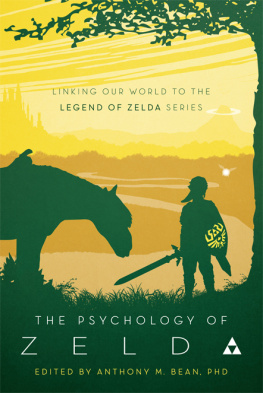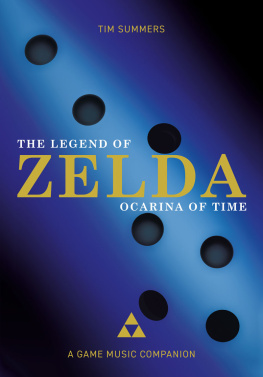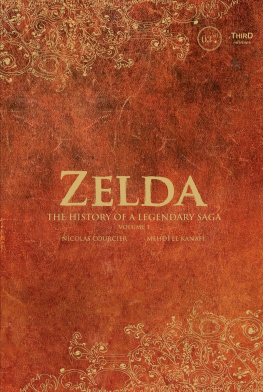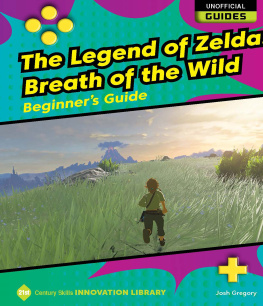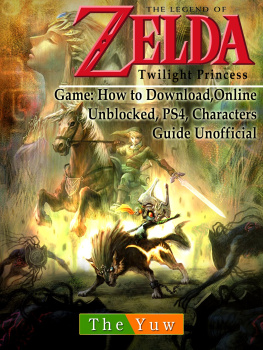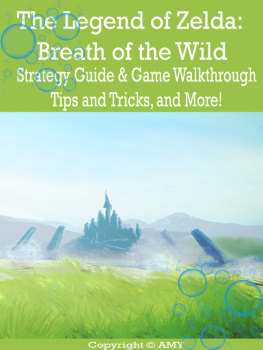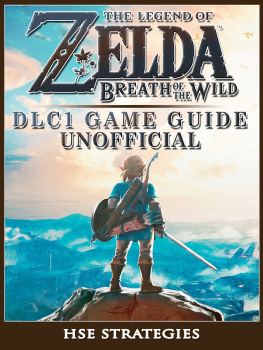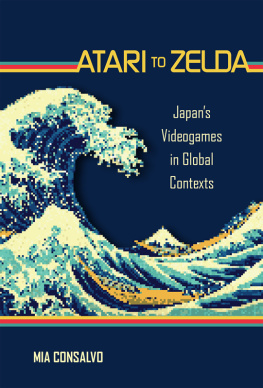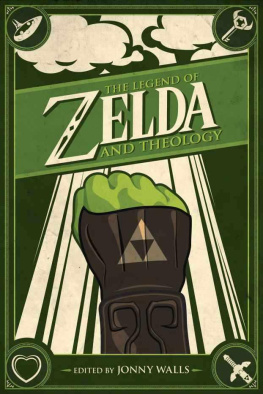TABLE OF CONTENTS
Guide
CONTENTS
Any video gamer with psychology experience, or who has seen the potential growth opportunities games give us and the impact they can have on us, knows that our experience of a video game is more than just the playing of it. We also have discourse about all aspects of it: what we liked, development changes between games, and our own hypotheses about the games content. The connections built between the game and the players during the game and after it ends form an important and inseparable bond, but none of that would be possible without the team of developers who put many months into the game to make it so enjoyable. Without themand without Nintendo, which continues to allow them to make new Legend of Zelda games for all to enjoythis book, too, would not be possible. Thank you for all that you do to make each game so exciting to play, over and over.
This book, while a labor of love, has taken time to formulate, edit, and write. I want to give a special thanks to all of the writers in this book, as they have poured countless hours into their chapters, honing and crafting them ever more beautifully. The depth provided in each and every chapter here is remarkable and I would be honored to work with any of their writers again. I thank you all for your contributions, insights, inspiration, and overall dedication to this book.
Finally, this book would not be as polished without the help of its publisher, BenBella Books. They saw the value of talking about the Legend of Zelda, psychology, and video gaming, and allowed us to run with this book. Throughout the process, they were incredible in helping clearly formulate thoughts and concepts and pushing us all to our limits. Their guidance and technicality was truly appreciated. Leah and Rachel, you both are amazing to work with, and your guidance is much appreciated; thank you.
Dr. Anthony Bean is a licensed clinical psychologist, video game researcher, and executive director at the Telos Project, a nonprofit mental health clinic in Fort Worth, Texas. Dr. Bean holds a doctorate in philosophy from Pacifica Graduate Institute, with an emphasis in depth psychology, and teaches at Framingham State University and Navarro College in the psychology departments. He specializes in the therapeutic implications of video games and gaming, working with children and adolescents, and the use of video game character identification as a therapeutic technique. He has authored multiple academic articles, book chapters, and the book Working with Video Gamers and Games in Therapy: A Clinicians Guide.
Dr. Bean works with children, adolescents, and adults who play video games and their families to better understand the immersive psychological effects video games have upon the individual and the resulting family dynamics. Using video game character identification techniques and other archetypal experiences, Dr. Bean guides them to understanding intrinsic motivations for playing, developing personal identity, and discovering conscious and unconscious conflicts, cognitions, and behaviors. He works with his clients on discovering their own symbolic transformations through the playing of video games, and on dealing with depression, trauma, anxiety, social isolation, and other common diagnoses, to great success.
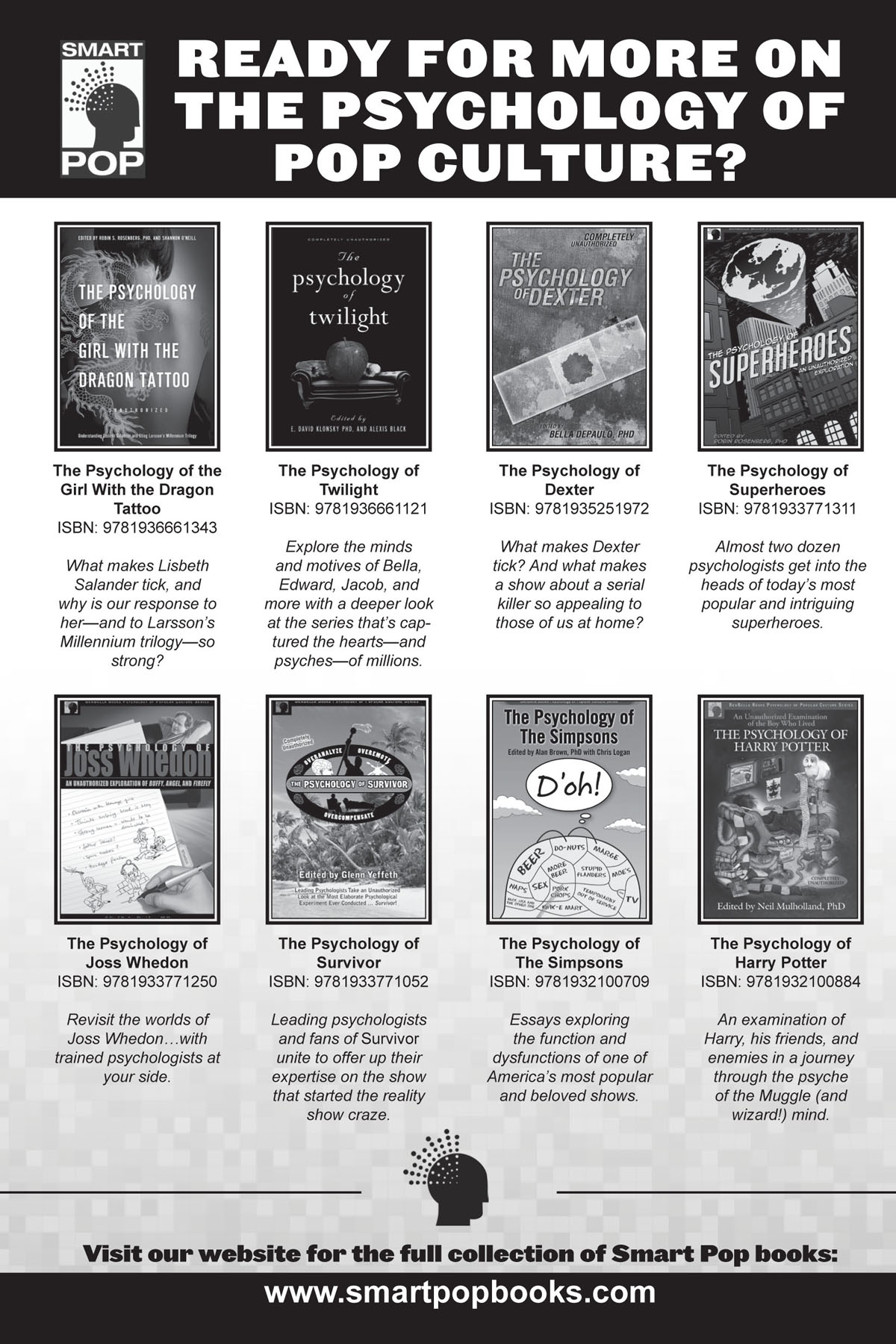
A sword wields no strength unless the hand that holds it has courage.
Heros Shade, Twilight Princess (2006)
A nyone who loves the Legend of Zelda series has likely, at some point, known the experience of truly becoming the hero, Link. Even if only for a few precious moments, your complicated human life was forgotten as you came to identify totally with this young man of humble origins, growing in strength and skill as he journeyed through the imaginal kingdom of Hyrule to face and thwart the forces that would destroy it. In the earliest of the games incarnations, this salvation of the realm was tied to rescuing a kidnapped and helpless Zelda, princess of the kingdom, though as the mythos has developed in the three decades since, Zelda has gradually become a partner rather than a victim, an incarnation and descendant of the Goddess Hylia, who, with the heros help, could seal away the demon Ganon, restoring peace to the realm. As the eons have passed, this cycle has happened again and again; each time, when the moment came, Link rose to serve the princess and face the darkness. And each time a human player picks up a new game in the Zelda series, this is the invitation: to take up the mantle of the hero once more; to become the unlikeliest of heroes, a boy named Link.
Psychology has much to say about this experience of the player becoming Link. One promising place to start is the concept of projection, whereby an individual projects certain psychological aspects of themselves outward onto something in the worldor in this case, the virtual world of Hyrule. Behavioral research into avatars and identity offers another piece to the puzzle, particularly when considered in tandem with the concept of theory of mind from cognitive psychology, which seeks to understand how the mind understands and imagines other minds apart from itself.
Of course, there are many games that make use of these three principles to invite the player to identify with the protagonist, but the Legend of Zelda was one of the first to do soand is still one of the most effective.

 THE VOICELESS HERO
THE VOICELESS HERO 

It has been a consistent feature across the thirty years of Legend of Zelda games that Link is a decidedly silent protagonist. In the decade of the earliest Zelda games, long before voice acting became commonplace in video games, the protagonists voice was largely a moot point. However, as technology has progressed and characters in video games have started talking, Links continued silence is more strongly felt. It is especially apparent in the most recent incarnation, Breath of the Wild (2017), in which a fully voiced Zelda carries on long conversations with Link while he responds with resolutely stoic silence (and it is a testament to the game creators skill that these scenes remain emotionally resonant). This silence on the part of the hero is a very deliberate choice by the designers. Series creator Shigiro Miyamoto has said that he wants the players to feel as if they are Link, and that introducing a voice actor or even scripted text would interfere with this identification. In essence, without a voice, Link becomes a semiblank slate that the player can psychologically project onto.
In psychology, the concept of projection refers, broadly speaking, to the phenomenon of an individual projecting an aspect of their personality, self, or inner world outward onto an external person or object, usually without conscious awareness. The concept originated in early twentieth-century depth psychology, a branch of psychology that focuses on the relationship between the conscious and unconscious mind. Psychoanalyst Sigmund Freud, who is widely regarded as the father of depth psychology, originally viewed projection in a mostly negative light, as a process whereby an individuals disowned thoughts and feelings were attributed to others. So, for example, an unconsciously selfish person might accuse others around him of being selfish. Or a person who cannot tolerate feeling weak and helpless might react with hostility to even the smallest sign of weakness in her friends.
Next page
